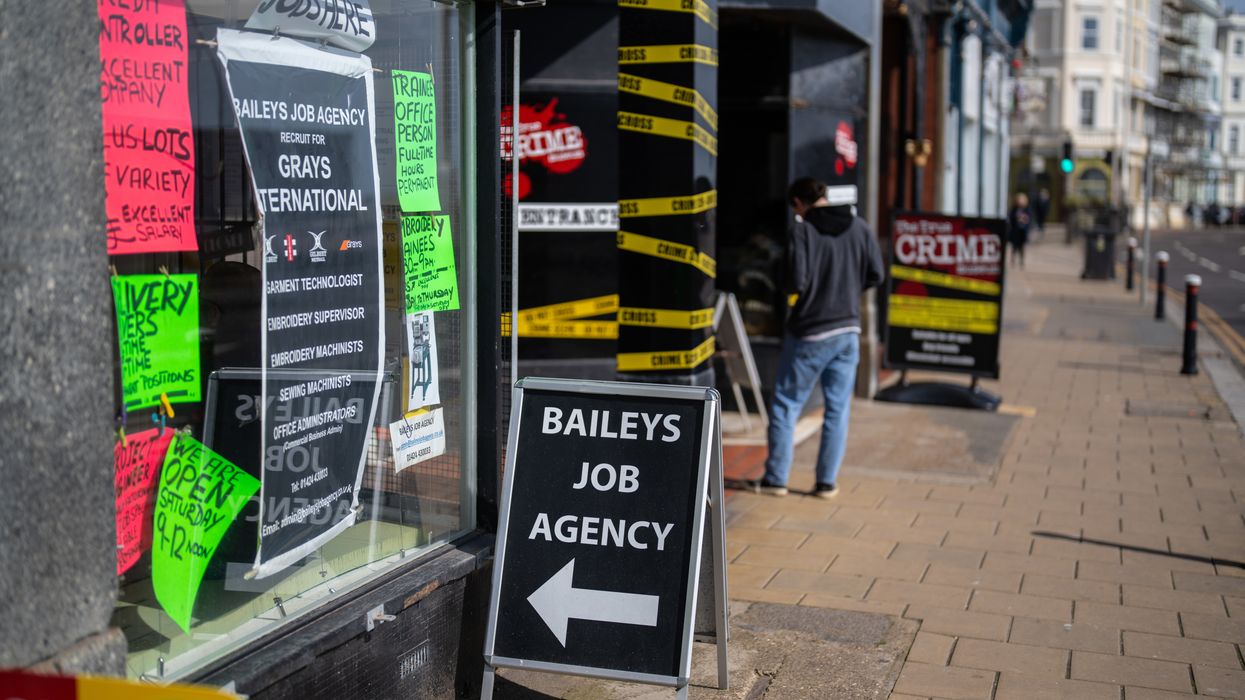ECONOMIC inactivity is a major obstacle to the UK’s productivity and competitiveness.
As a business owner and employer with over 30 years of experience, I have seen firsthand how this challenge has intensified as the economically inactive population approaches 10 million nationally - almost one million more than pre-pandemic.
This includes nearly three million on long-term sick leave, an all-time high since records began in 1993, representing over a fifth of all 16-64 year-olds. The good news is that within these high numbers are hundreds of thousands who want to work and could do so with proper support.
But, for any government, these numbers are alarming. Economic inactivity acts as a drag on productivity and growth, as well as creates an unsustainable benefits burden for the nation, with the combined cost of working-age incapacity and disability benefits estimated by the Office for Budget Responsibility (OBR) to hit £76 billion by the end of the parliament.
Recent national Centre for Social Justice (CSJ) reports highlight this significant increase in inactivity. They suggest a ‘Going Dutch’ decentralised approach that has seen the Netherlands reduce economic inactivity at three times the UK rate.
Government schemes here have shown mixed success thus far, often targeting only the most accessible cases rather than tackling the more challenging, but potentially more rewarding situations. I have repeatedly heard about thriving companies struggling to fill skilled positions while growing numbers of working-age adults remain disconnected from employment.
The CSJ highlights the enormous financial burden – £28bn annually in additional welfare payments, plus lost productivity and tax revenue. Equally concerning is the erosion of workplace skills among the long-term economically inactive, creating a downward spiral that worsens over time.
The ‘Going Dutch’ approach would provide holistic, person-focused support – something difficult to deliver from Whitehall. It would devolve employment support and adult learning budgets to better respond to local needs, requiring central government to embrace the risks of devolution and engage with grassroots organisations who understand their communities best. In Norway, they have, for generations, developed what a job coach might look like to something they call a social worker, but who focuses on the need of the person, not the services of the state. And in Denmark, they have experimented with giving local areas full autonomy in service design and delivery.
Dr Nik Kotecha
The good news is these approaches would not require substantial new funding. As an advocate for local knowledge and networks, I have long supported greater devolution of skills and employment policies to regional authorities. Local authorities and councils understand our local labour markets in ways Westminster cannot. They know which sectors are growing, which communities face particular challenges and which interventions work in a local, grassroots context.
The CSJ’s recommendation to devolve responsibility for employment support and adult education makes sense from a business perspective. It would enable agile, responsive approaches that our dynamic regional economy demands, replacing one-size-fitsall national programmes with tailored interventions.
Perhaps the most crucial insight is recognising that health and employment are deeply interconnected. The growing number of people classified as long-term sick represents a failure to create appropriate pathways back to employment that accommodate health conditions. In my businesses over the years, we have found that flexible arrangements, graduated return-to-work programmes and workplace adjustments can enable many individuals with health challenges to contribute productively.
What is needed is a fundamental shift in how we view the relationship between health and work. The current system too often presents a binary choice of either ‘fully fit for work’ or ‘entirely incapable’ – when in reality, most people lie somewhere inbetween.
The skills gap in the UK is not just about worker numbers, it is about equipping people with capabilities which our evolving economy demands. In my experience, the most effective training programmes are those developed in partnership between employers and education providers. When businesses can directly shape curriculum content, specify skills needed and offer workplace experience, the results are transformative.
Economic inactivity is not just about monetary costs either, it is about community wellbeing and social cohesion. Employment provides not just income, but also purpose, structure and social connection. Companies are not just economic entities, they are social institutions that can directly strengthen their communities.
For business leaders, I call for greater engagement with local authorities and skills providers to help develop employment pathways for the economically inactive. Rather than lamenting skills shortages, we should be actively participating in creating the workforce we need.
For policymakers, I would urge bold implementation of the CSJ’s recommendations, particularly devolving employment and skills responsibilities to regional authorities.
And for our communities, I ask for a renewed recognition of work’s value, not just as a source of income and prosperity, but also as a foundation for individual dignity as well as collective prosperity.
The untapped potential represented by economic inactivity in the UK is not just a problem to solve, it is our greatest opportunity for future growth. By combining business innovation, policy reform and community engagement, we can create pathways back to employment that benefit us all.
So let’s try ‘Going Dutch’, or ‘Norwegian’, or ‘Danish’ as possible solutions to addressing our nation’s most pressing inactivity challenges.
(Dr Nik Kotecha OBE is an internationally renowned businessman, scientist, influencer and serial entrepreneur. He founded and led the inspirational growth of leading Midlands-based developer and manufacturer of generic medicines, Morningside Pharmaceuticals Ltd, and is founder and chairman of RandalSun Capital. His current global business portfolio is wide-ranging and includes investments from start-ups to patient capital, with retained interests in health, life sciences and high innovation, IPrich businesses.)




Anurag Bajpayee's Gradiant: The water company tackling a global crisis